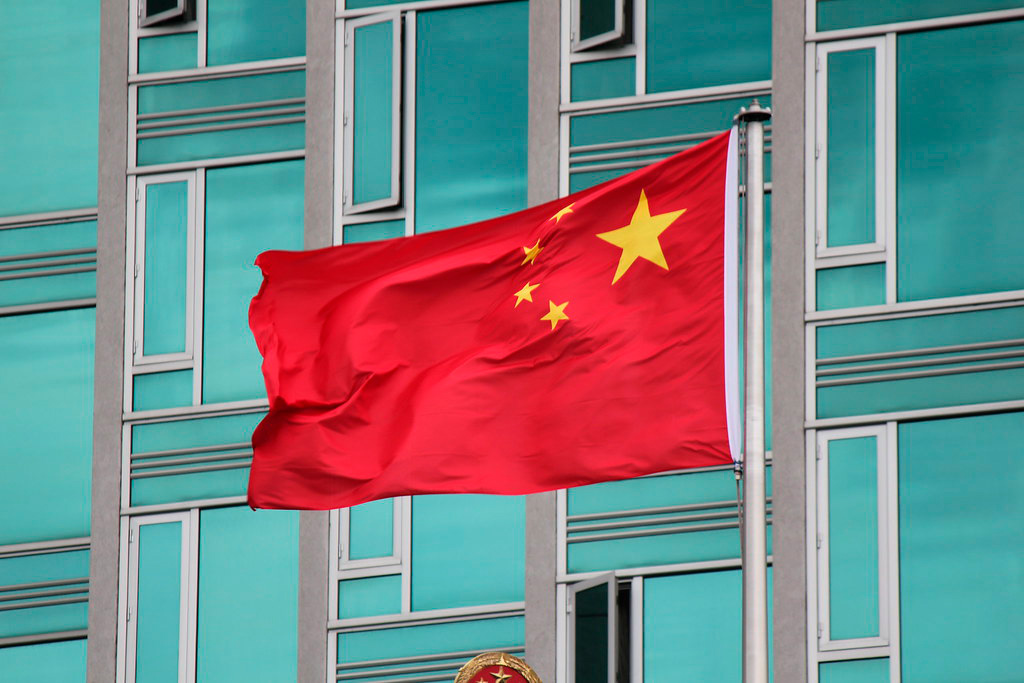China, which awarded Sri Lanka with a delayed response to its request for debt restructuring, appears to pressure Sri Lanka into signing a Free Trade Agreement (FTA) today under the guise of helping to restructure debt repayments.
Negotiations for a possible FTA between the two countries were launched as far back as 2014 in the presence of Chinese President Xi Jinping and Sri Lankan President Mahinda Rajapaksa. Both sides continued to have several rounds of talks.
The 5th round of China-Sri Lanka FTA negotiation was held in Colombo where the two sides exchanged views on issues concerning trade in goods, trade in service, investment, economic and technical cooperation, rule of origin, customs procedures and trade facilitation, technical barriers to trade (TBT), sanitary and phytosanitary measures (SPS) and trade remedy.
According to experts, the disadvantage for Sri Lanka is that China’s FTAs restrict the use of para-tariffs, such as the import levy used by Sri Lanka.
For a country like Sri Lanka, whose exports are confined to a few products, an agreement that reduces barriers to trade on thousands of other products but excludes these key exportable products from the world and from China will fail to facilitate Sri Lanka’s export growth.
Since the end of the Sri Lankan civil war in 2009, China has extended numerous loans to Sri Lanka for various infrastructure projects, including a port, an airport, highways, and other significant projects. However, concerns have been raised about the nature of China’s financial assistance and the motivations behind its debt restructuring efforts. Critics argue that China’s financial assistance is part of a broader strategy to extend its economic and political influence in the region, with Sri Lanka serving as a key location for China’s ambitious Belt and Road Initiative (BRI).
The China – Sri Lanka FTA would open up new markets for Chinese businesses while providing Sri Lankan businesses with access to China’s vast consumer market. However, critics argue that the deal would be heavily skewed in favour of China, leading to a flood of cheap Chinese goods into Sri Lanka and undermining the country’s domestic industries. Moreover, some experts suggest that China’s efforts to push for the FTA may be part of a broader strategy to gain greater influence over Sri Lanka.
Sri Lanka occupies a strategic location in the Indian Ocean, making it an essential part of China’s ambitious Belt and Road Initiative, which seeks to expand China’s economic and political influence in the region. The Chinese push for the FTA has been met with opposition from some quarters in Sri Lanka, with critics suggesting that the deal would not be in the country’s best interests. Furthermore, Sri Lanka has been facing growing concerns about its growing economic dependence on China, with some experts suggesting that the country risks falling into a debt trap that could threaten its economic sovereignty. To address these concerns, Sri Lanka has been seeking to diversify its economic ties, exploring new opportunities for economic partnerships with other countries in the region. The Sri Lankan government has also been seeking to renegotiate its debt agreements with China, with some suggesting that the country may be seeking to reduce its dependence on Chinese loans.
One of the potential disadvantages of signing the FTA with China is the risk of job losses. Sri Lanka’s labour-intensive industries, such as textiles and apparel, could face increased competition from cheaper Chinese imports, leading to potential job losses in these sectors. This could be especially problematic for Sri Lanka, which is already grappling with high unemployment rates and a struggling economy. Another potential disadvantage of signing an FTA with China is the risk lowered regulatory standards. As part of the FTA negotiations, Sri Lanka could be required to harmonize its regulatory regime with China, potentially leading to a “race to the bottom” in terms of labour standards, environmental protection, and intellectual property rights. This could be particularly problematic for Sri Lanka, which has faced criticism in the past for lax environmental and labour regulations. Finally, signing an FTA with China could lead to a loss of policy autonomy for Sri Lanka. Sri Lanka could be required to abide by certain rules and regulations set forth in the FTA, potentially limiting its ability to pursue certain policies in areas such as trade, labor standards, and the environment. This could be particularly problematic if Sri Lanka’s priorities or values differ from the China in these areas. However, China’s efforts to push for the FTA continue, with some experts suggesting that the country may be using its financial leverage to coerce Sri Lanka into signing the deal.
The situation in Sri Lanka highlights the risks associated with excessive reliance on foreign loans and the importance of balancing economic development with strategic interests. China’s debt restructuring efforts in Sri Lanka and its push for the FTA have raised concerns about the country’s growing economic and political influence in the region. While Sri Lanka has been seeking to reduce its dependence on China and diversify its economic ties, it remains to be seen whether the country will be successful in achieving these goals. The situation in Sri Lanka underscores the importance of balancing economic development with strategic interests and the risks associated with excessive dependence on foreign loans.
Hence, it is imperative for Sri Lanka to revisit the FTA framework with China in order to achieve a win-win.

